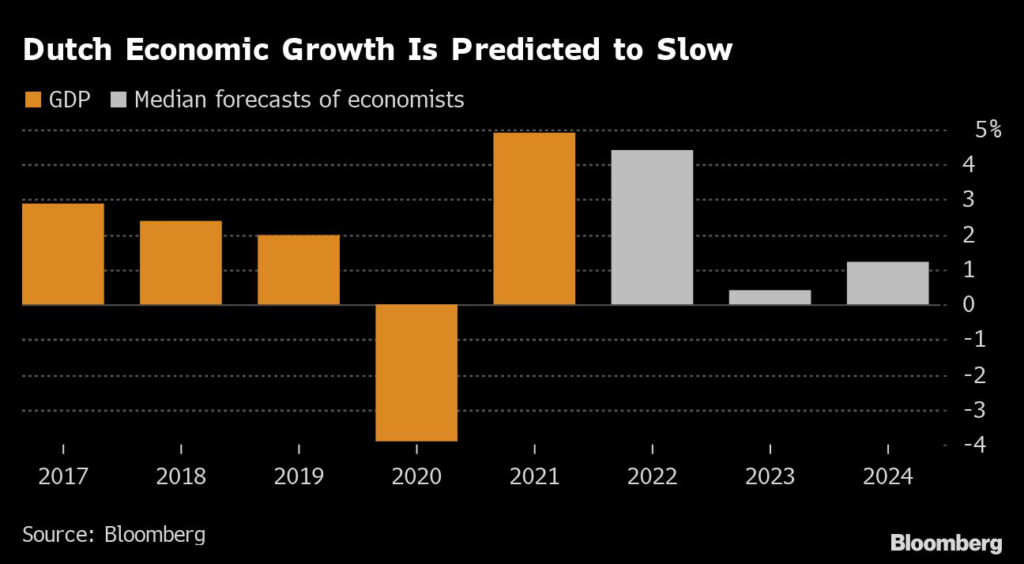Dutch growth has “hit a wall” because of nitrogen emissions and a lack of space as the Netherlands seeks to reduce the environmental impact of its economy, Finance Minister Sigrid Kaag said.
(Bloomberg) — Dutch growth has “hit a wall” because of nitrogen emissions and a lack of space as the Netherlands seeks to reduce the environmental impact of its economy, Finance Minister Sigrid Kaag said.
The world’s second-largest agricultural exporter will need to accelerate a shift toward high-tech jobs, boost affordable housing and attract more business investment over the next decade, she said in an interview with Bloomberg News.
“We’ve hit a wall in terms of current possibilities due to nitrogen, CO2 emissions and space,” Kaag said at her office in The Hague. Economists predict growth in output will slow to 4.4% this year and 0.4% in 2023, following a post-pandemic rebound to 4.9% in 2021.
The Netherlands, where farming takes up close to three-fifths of the country, had agricultural exports of €105 billion ($110 billion) last year, according to an estimate from Wageningen University. Cattle and fertilizers are key sources of nitrogen emissions, and the country is already breaching limits set by the European Union.
The Dutch government wants to transform its agricultural, transportation and construction sectors to meet a goal of halving emissions by 2030, and plans to buy out thousands of farmers to free up land. This could lead to a one-third drop in livestock over eight years.
Read more: Dutch No Longer Want to Be One of World’s Top Agro Exporters
Kaag said the Netherlands’s growth strategy must focus more on technology and a highly skilled labor force. The country is already home to ASML Holding NV, the world’s biggest manufacturer of chipmaking machines and Europe’s most valuable tech stock.
“We’re clearly trying to sustain an investment climate that’s attractive for a wide range of companies to either invest here or stay here,” she said. “But we need to make very difficult choices and we need to do it in a way that the majority of people not only understand but also support because they know we cannot incur a climate debt.”
The country became engulfed in months of protests by farmers after the government presented plans to reduce emissions in June.
Fossil Fuels
Asked about EU efforts to wean itself off Russian fossil fuels, Kaag said the Netherlands is against joint borrowing to accelerate the transition to cleaner energies.
Member states are negotiating a proposal, known as REPowerEU, to use as much as €220 billion of unused loans from the bloc’s pandemic recovery fund and €20 billion of subsidies to bolster the EU’s energy infrastructure.
“We’re not convinced that the common reflex is common borrowing or a sovereignty fund,” Kaag said.
–With assistance from William Horobin.
More stories like this are available on bloomberg.com
©2022 Bloomberg L.P.











